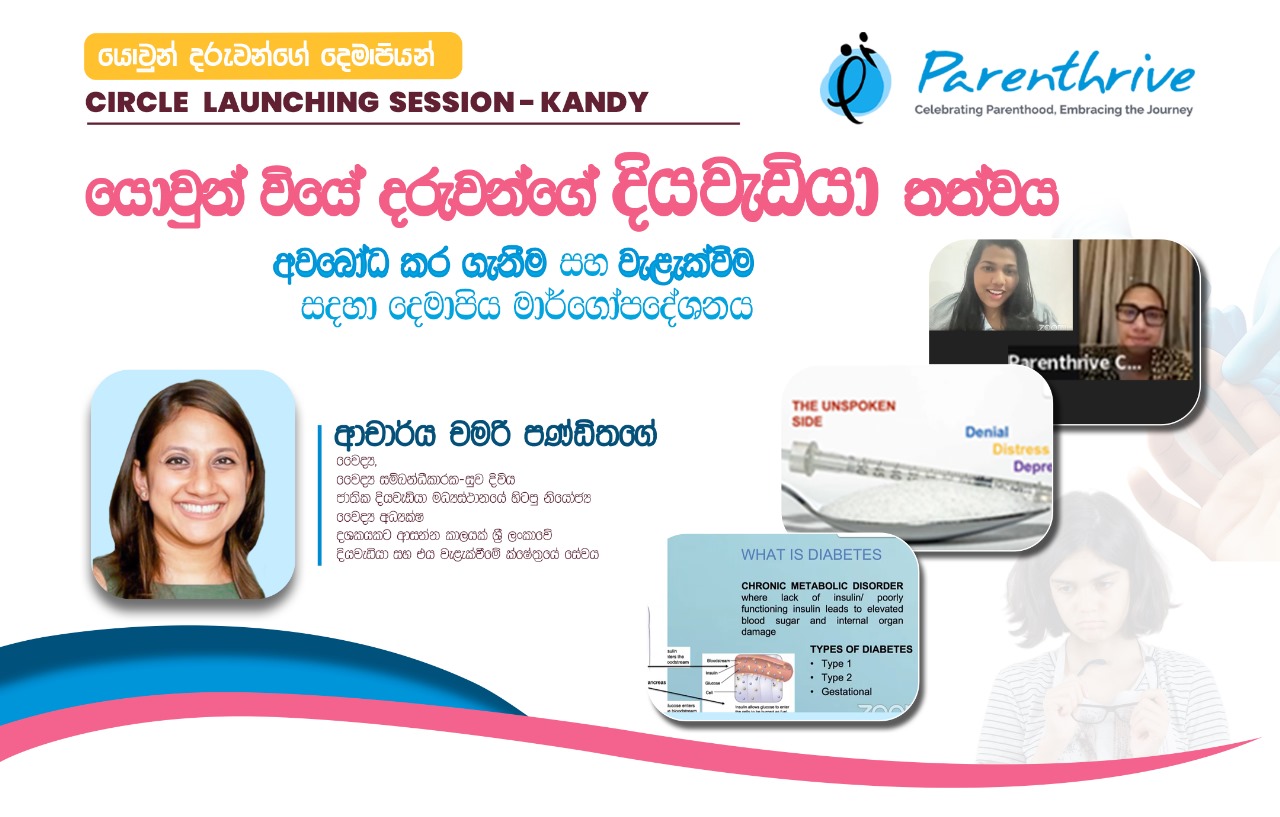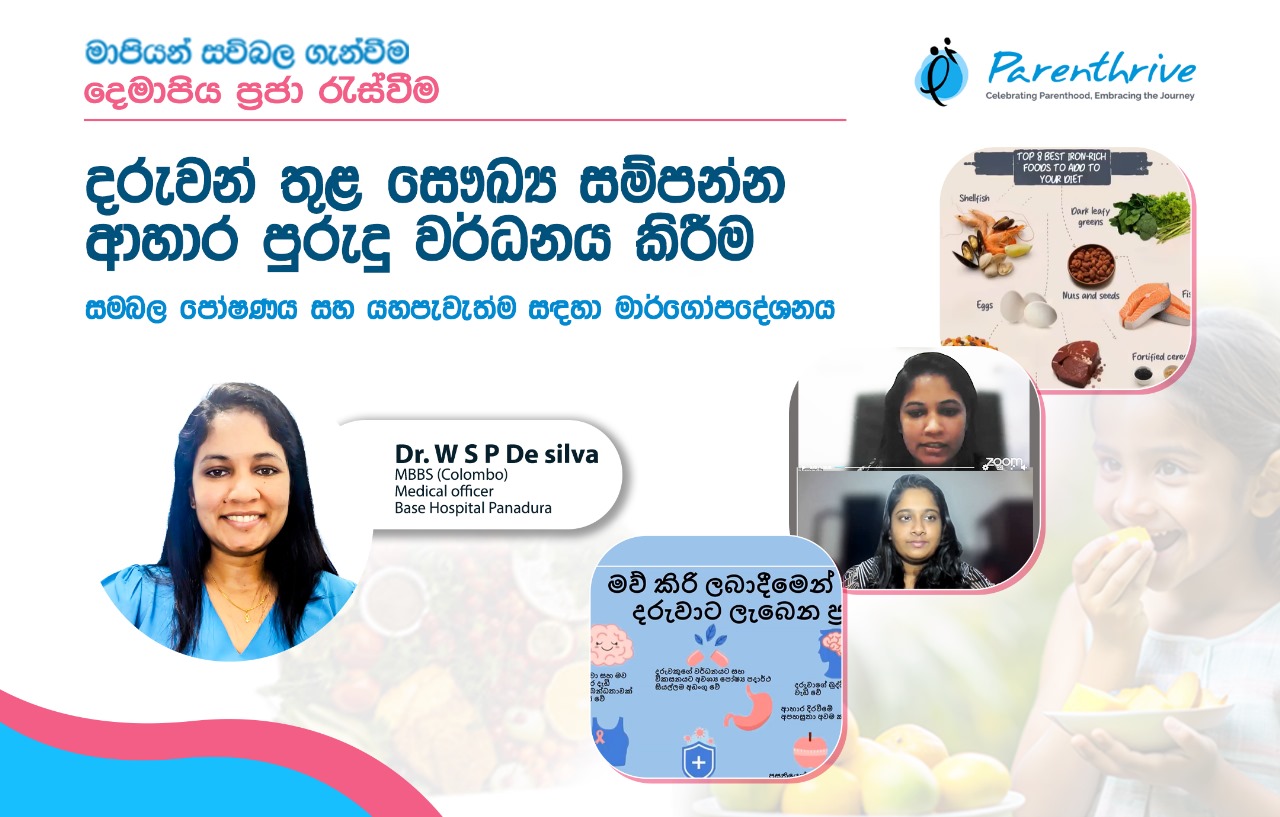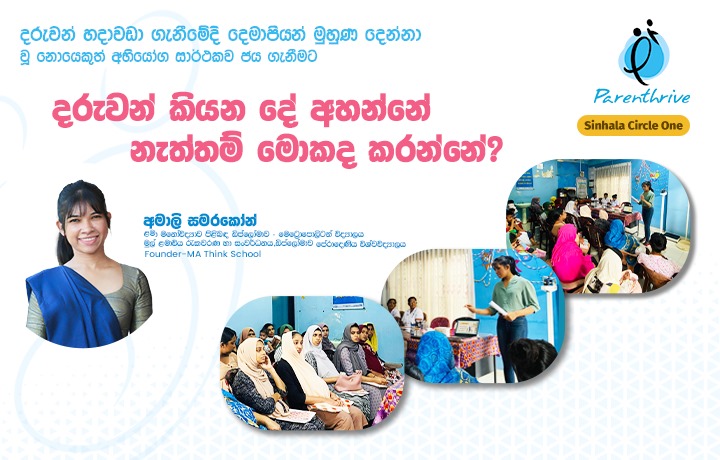
Parenthrive held a session on the importance of developmental milestones with Dr. Minidu Bogahawatta on the 16th of June at 8 p.m. via Zoom. The doctor spoke on many topics that held great interest to our participants.
Childhood is a period of rapid growth and development, with specific milestones serving as benchmarks for evaluating a child's progress. These milestones are critical indicators of a child's physical, cognitive, and social-emotional development. Understanding and monitoring these developmental milestones can help identify motor delays early, allowing for timely intervention and support.
Understanding Developmental Milestones
Developmental milestones are key behaviors or physical skills that most children achieve within a certain age range. These include rolling over, crawling, walking, and talking. From birth to age 5, children typically progress through several motor milestones:
- Birth to 3 Months: Babies start gaining neck muscle control, lifting their head while lying on their stomach, and turning their head from side to side.
- 4 to 6 Months: They begin rolling over and sitting with support, marking their first major milestones.
- 7 to 9 Months: Most babies can sit without support and begin crawling.
- 10 to 12 Months: They start pulling to stand and "cruising" along the furniture.
- 1 to 2 Years: Walking independently, running, and climbing stairs become common.
- 2 to 3 Years: Jumping, kicking, and throwing are usually mastered.
- 3 to 4 Years: Riding a tricycle and balancing on one foot.
- 4 to 5 Years: Skipping, hopping, and showing improved coordination and strength.
The Importance of Monitoring and Early Intervention
Monitoring these milestones is crucial for identifying potential developmental delays. If a child does not reach these milestones within the expected timeframes, it may indicate a need for further assessment. Early identification and intervention can significantly improve outcomes by leveraging the brain's neuroplasticity, especially during the critical early years of development. Children who receive early intervention are more likely to develop better motor skills, cognitive abilities, and social-emotional skills.
Role of Parents in Early Identification
Parents are the primary observers of their child's development. Being familiar with their child's abilities, behaviors, and routines, they are in the best position to notice any deviations from typical developmental milestones. Early signs of motor delay include:
- By 6 months: Not rolling over or holding up their head.
- By 12 months: Not crawling or pulling up to stand.
- By 18 months: Not walking or showing interest in interactive play.
Recognizing these signs early allows parents to seek professional guidance and intervention, which can make a significant difference in their child's developmental trajectory.
Effective Intervention Strategies
Physiotherapy:
- Muscle Strength: Activities like crawling, climbing, and pushing build muscle strength.
- Coordination: Exercises such as catching a ball and walking along a line enhance coordination.
- Balance: Standing on one foot, walking on a balance beam, or playing on a stability ball improves balance.
Occupational Therapy:
- Fine Motor Skills: Exercises include grasping small objects, threading beads, or using scissors.
- Sensory Integration: Activities involving different textures, sounds, and movements help children respond more effectively to sensory input.
Speech Therapy:
- Oral Motor Skills: Strengthening muscles used for speaking and eating through exercises like blowing bubbles and chewing different textures.
- Communication: Enhancing communication skills through interactive games, picture cards, and storytelling.
Play Therapy:
- Engaging Activities: Structured play sessions involving obstacle courses, ball games, or building blocks encourage movement and coordination.
- Motivation and Fun: Keeping activities fun and engaging helps maintain the child's interest and motivation.
Integrating Activities into Daily Routines
Parents can integrate developmental exercises into daily routines to support their child's motor skills development:
- Dressing: Encourage standing on one foot while putting on clothes and practicing buttoning or zipping.
- Mealtime: Promote self-feeding with utensils and chewing various textures.
- Bath Time: Engage in water play and practice standing exercises.
- Playtime: Play interactive games like Simon Says, hide and seek, or tag, and engage in craft activities like coloring and cutting.
- Household Chores: Involve children in simple tasks like setting the table, picking up toys, or helping with gardening.
Early identification and intervention are key to addressing motor delays in children. By attentively monitoring developmental milestones and integrating supportive activities into daily routines, parents can significantly aid their child's developmental progress. These proactive steps ensure that children with motor delays receive the necessary support to reach their full potential, laying a strong foundation for their future learning and development.






